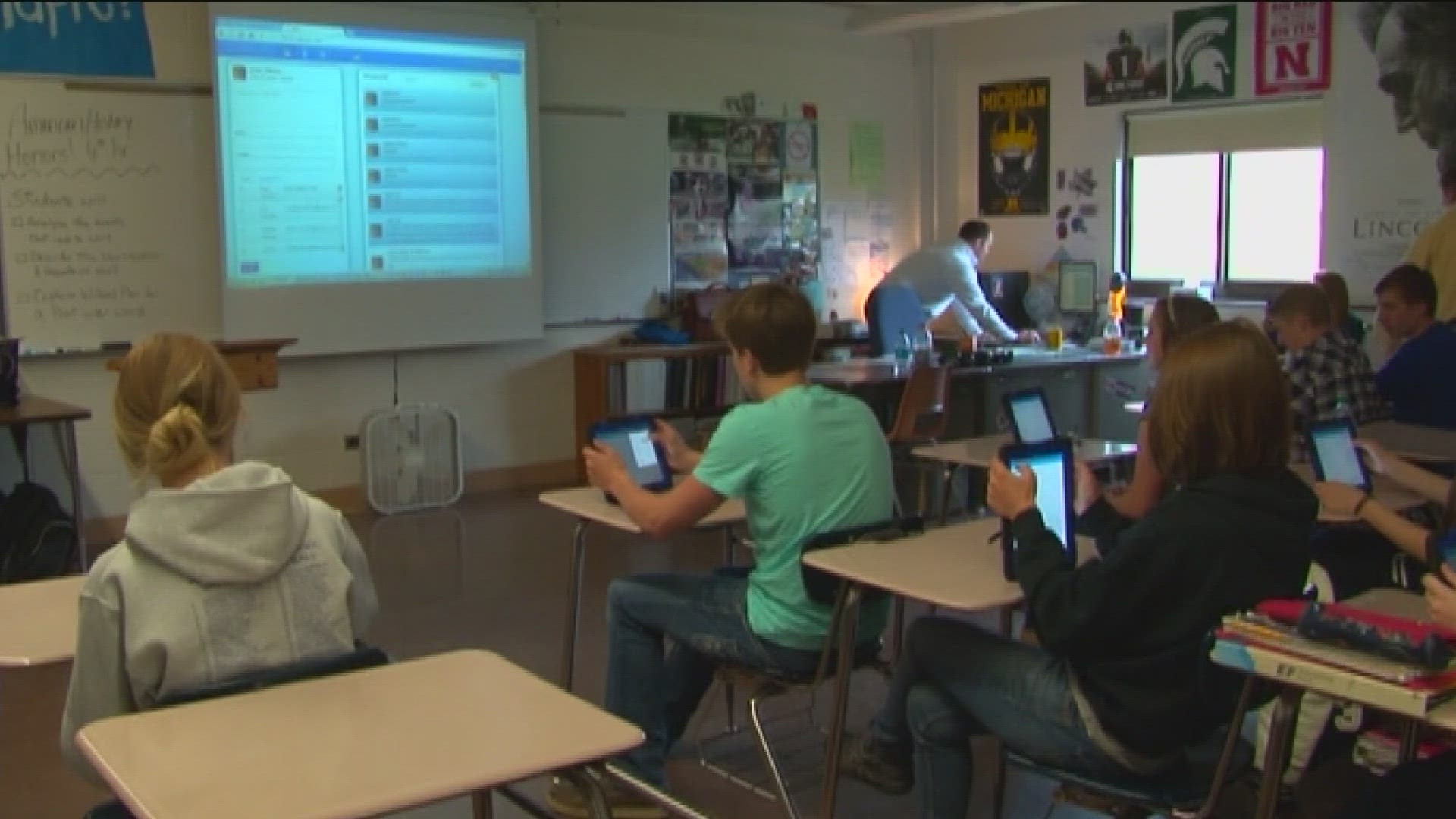TOLEDO, Ohio — An Ohio House Bill aims to decrease the absenteeism rate in the state by paying students to attend school.
HB 348 would start a pilot program with one urban and one rural school, both of which would need to have a chronic absenteeism problem. A student is considered chronically absent if they miss 10% or more of the school year.
Michael Carter, a Sylvania Southview High School parent, thinks the program could help parents who struggle to get their kids to attend school.
"In our case, our kids go to school every day, but I know there are some kids that struggle with that," Carter said. "I think it could be helpful with parents that need help with getting their children to school."
State rep. Josh Williams (R-Sylvania) disagrees with the bill. He serves on the primary and secondary education committee and thinks parents shouldn't need an incentive to get their kids to school.
"I knew I was disagreeing with the bill and its premise, the idea that we were going to pay kids and parents for going to school," he said.
If passed, parents of kindergarten students at participating schools would receive $50 a month, totaling $500 for the whole year, for attending school at least 90% of the school year. That's the same for ninth-grade students or their parents.
There is also an incentive for high school graduates. Williams favors that incentive as a former high school drop-out but thinks the $1.5 million price tag for a two-school pilot program would be a burden too costly for taxpayers, especially those without kids.
"You already pay taxes to provide a free education to those children," Williams said. "But now you're going to actually pay a parent next door, out of your pocket, to make sure their kids get up and get on a school bus."
Dani Issacsohn (D-Cincinnati) is the bill's co-sponsor along with Bill Seitz (R-Cincinnati). Isaacsohn said this bill could save money by keeping kids in school and out of trouble.
"If one student spends a year in the Department of Youth Services or in juvenile detention, we're talking a six-figure cost to the state and to the government," Issacsohn said.
According to state records, the chronic absenteeism rate for Toledo Public Schools in the 2022-23 school year was about 42%. The state average for the 2022-23 school year was about 26%.
"I hope this pilot works," Issacsohn said. "But either way, we need to be figuring out what the answer is to this issue of chronic absenteeism."
The bill hasn't been introduced in the Ohio House yet. If passed in both the House and Ohio Senate, the Department of Education and Workforce would take the lead on implementing it.
If interested, schools would need to send an application to ODEW.
To read HB 348, click here.

